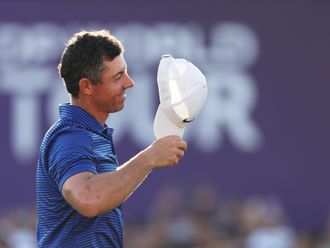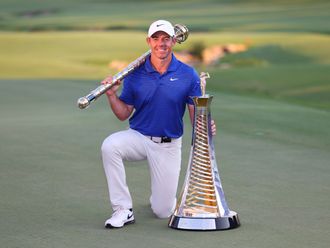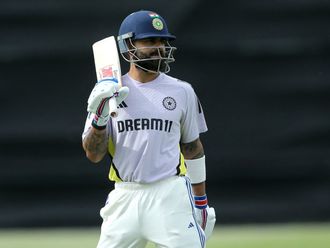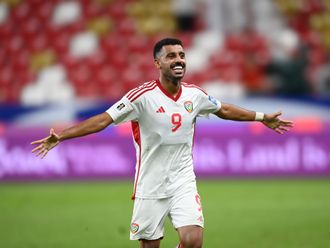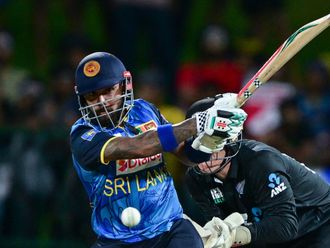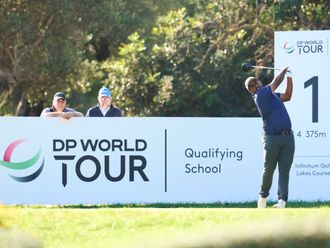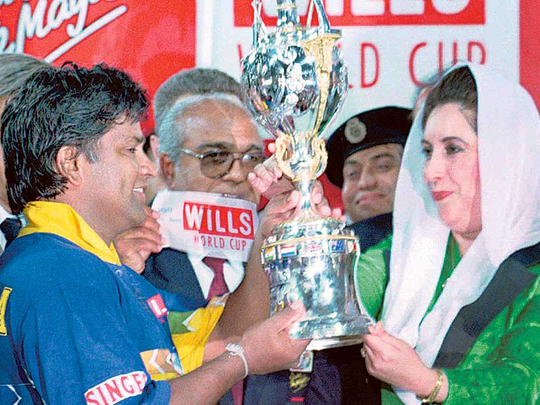
Kolkata: “25 years after 1996. The win that galvanized a nation and inspired me to imagine that maybe one day I would play for the country. #1996worldcupwin.” - Kumar Sangakkara on Twitter.
A former Sri Lankan captain and one of the alltime batting greats of the game. ‘Sanga’ has a way with his words - and it was no different on Wednesday, March 17. It was 25th anniversary of the day Arjuna Ranatunga and his band of soft-spoken but steel-willed individuals stood on top of the cricketing world at the Gaddafi Stadium in Lahore after beating Australia in the final to win the 50-overs World Cup.
If a rotund Ranatunga played the elder brother, there were a set of exceptionally talented individuals like Aravinda De Silva, easily the best batsman of the side, Sanath Jayasuriya, Romesh Kaluwitharane, Asanka Gurusinha, Roshan Mahanama, Chaminda Vaas and of course Muttiah Muralitharan - who showed remarkable composure under pressure and made best use of the sub-continent conditions to win cricket’s biggest prize - 15 years after being recognised as an official Test playing nation in 1981.
Talk of galvanising a nation - yes. The island country was still very much in the middle of a civil war with the LTTE (Liberation Tigers of Tamil Eelam) in control of Jaffna in the northern part of the country. The situation was so tense that two of the major countries in a 12-team tournament, Australia and the West Indies, refused to visit Sri Lanka to play their group league matches there even at the cost of losing points.
Jagmohan Dalmiya, the convenor of PILCOM (Pakistan-India-Lanka committee), the joint organisers of the 1996 showpiece, got into a huddle with members of the three host boards and came up with nothing short of a masterstroke to show their solidarity with Sri Lanka. A joint India-Pakistan team, led by Mohammed Azharuddin, was flown to Colombo to play the Sri Lankan team for the World Cup in a one-off match as a confidence building measure - a gesture for which Dalmiya is still treated with a lot of respect in their cricket fraternity.
When Ranatunga received the trophy from Benazir Bhutto, the then Pakistan Prime Minister one and-a-half months later, it was hence more than just a cricketing triumph for the small country. If the presence of Muralithran, a Tamil, in the team made a statement for harmony - it also inspired the next generation of youngsters to pursue the sport and produced two greats like Sangakkara and Mahela Jayawardene. The duo was instrumental in leading the Lankans to another major World Cup when in 2014, they won the World T20 in Dhaka.
The cupboard had been very much bare since then with the transition not yet being complete - though the Islanders has had a few sparks in between like a Test series win in South Africa in 2018.
Trust Ranatunga to mince no words when he spoke out the 25th anniversary of the win at Temple Trees, a luxury resort in Colombo on Wednesda,y in the presence of the country’s Prime Minister Mahinda Rajapaksa.
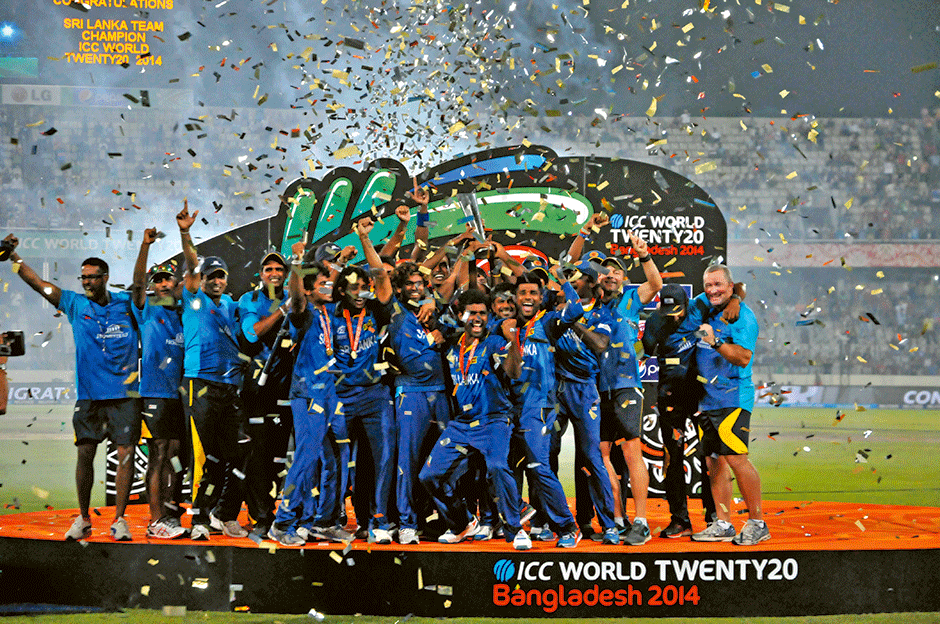
Speaking at the event, Ranatunga said that it has been 25 years since Sri Lanka won the World Cup, but everyone in this country still remembers the winning moment. He said there are some things that former players cannot do, but they have to let the able people handle it when they can’t.
He said that he would like to request the Prime Minister to appoint a proper committee to look into the abyss Sri Lankan Cricket has fallen into at present. Ranatunga concluded his speech by thanking the Prime Minister’s Office, Ministry of Sports and Youth Affairs and Sri Lanka Cricket. for inviting members of the ‘96 World Cup with their families - and making a request to fix Sri Lankan Cricket under the leadership of the Prime Minister and the Minister of Sports.
Can the memories of ‘96 triumph galvanize Sri Lankan cricket again in the coming days? We will have to wait and watch.
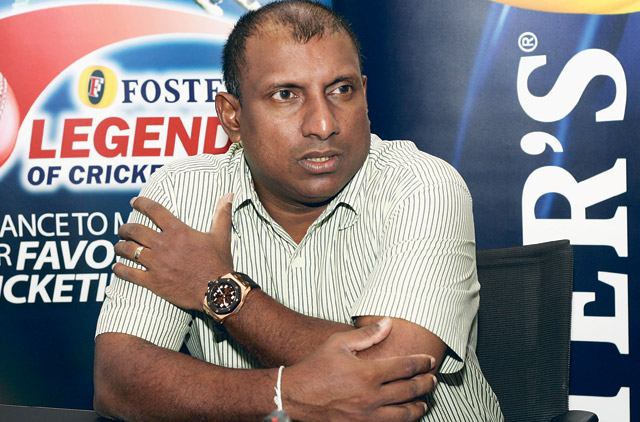
How did Sri Lanka win the Cup?
In what was a 12-team tournament, Sri Lanka played out of their skins to win trophy, hosted jointly by India, Pakistan and Sri Lanka.
Due to security concerns in Colombo, Australia and West Indies forfeited all their games at the venue and the Lankans won two of their five league matches without a ball being bowled. They defeated the likes of Zimbabwe, India and Kenya to remain unbeaten in the league stages of the tournament.
In the first quarter-final against England in Islamabad, Ranatunga and his men cruised past them by five wickets. Jayasuriya was the star of the match with a 44-ball knock of 82 while also picking up a couple of wickets.
The infamous semi-final against India at the Eden Gardens in Kolkata was next. The ‘Men in Blue’ were not at their best and the fans resorted to vandalism - throwing objects onto the ground even as the game was still underway. This caused the game to end abruptly and Lanka were declared the winners by ICC Match Referee Clive Lloyd.
The final was played at the Gadaffi Stadium in Lahore against Australia. The Lankan bowlers were brilliant in the final and restricted the Aussies to a sub-par total of 241/7. Aravinda De Silva was the pick of the bowlers with his mingy off spin to finish with three wickets.
In the chase, it was De Silva again who came to Sri Lanka’s rescue after they lost a couple of early wickets. He scored an unbeaten knock of 107 to help Sri Lanka get over the finish line.
Gurusinha (65 off 99 balls) and Arjuna Ranatunga (47* off 37 balls) also made valuable contributions as Sri Lanka won the World Cup final by seven wickets.


